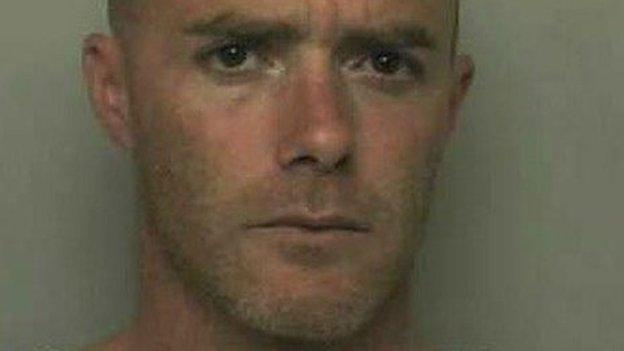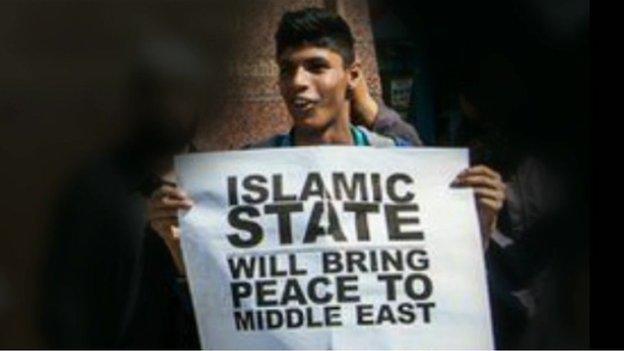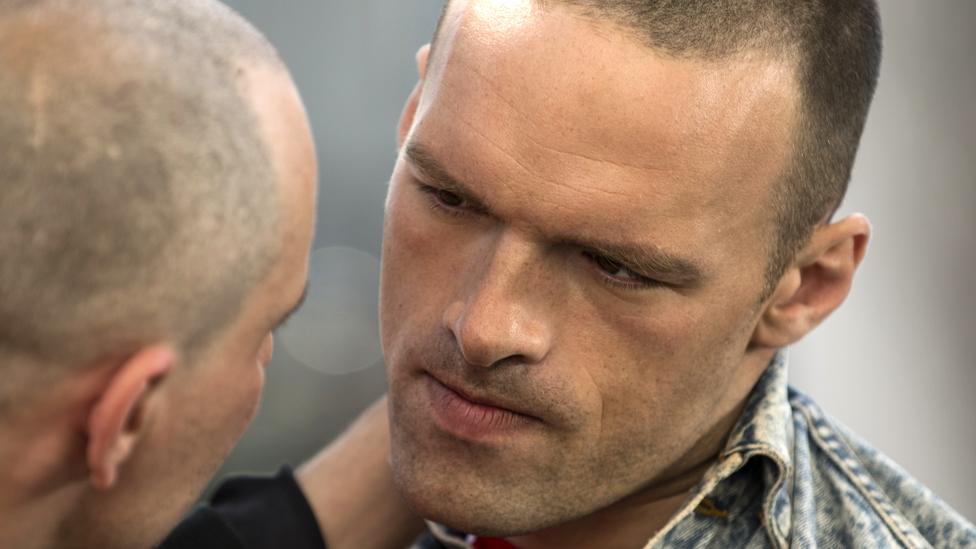Far right 'targeting new, younger generation'
- Published
A BBC investigation has found children and teenagers are being recruited online by new groups of far right extremists, as Hywel Griffith reports
Radicalised online and encouraged to hate - it's a description many would associate with young, British Islamist extremists.
But the same sort of methods are being used to try to draw white, British children and young people towards new, extreme, far-right groups.
In recent years, the influence of more established, political organisations, such as the BNP and the English Defence League, has declined, leaving the far-right fragmented.
Some of the more extreme groups which have developed since have focused their attention on recruiting a new, younger generation of members.
Pictures posted online illustrate the attempts of the South Wales British Movement to set up its own youth wing.
Children are shown taking part in day trips to various beauty spots, posing with the group's banners and Neo-Nazi emblems.
This week, the group's sister organisation in West Yorkshire announced the creation of another youth section, called Young Wolf.

Richard Harris had posters of Hitler in his living room, his trial heard
But there are serious questions over the adults in charge. In January, South Wales British Movement organiser Richard Harris was jailed for five years, after attacking an Asian man with a glass bottle.
According to Prof Matthew Feldman from Teesside University, the far right is going through a period of "recalibration".
"Time will tell as to whether or not those groups go towards the modernisation and the suit-wearing slickness of trying to engage in populist politics," he says.
"Or down the more extremist route that engages in different types of extremist violence."
At a project in Swansea which tries to educate teenagers seen as at-risk of far-right radicalisation, I met Alan Walton who two years ago was taking part in white-pride marches.
He explained to me that his first contact with extremism came through conversations online, which developed into him attending meetings, where the focus was on hatred towards British Muslims.
"They'll talk to you, tell you a few things about their religion and why they shouldn't be here," Alan says.
"You just get sucked in so easy when you're sitting there listening to them, and then, boom - you're part of it then."
'No-go areas'
The anti-Islamic rhetoric is another feature which unites many of the new groups.
According to Prof Feldman, they are trying to appeal to a generation whose view of Muslims has been distorted by events in the news.
"They, having grown up in the shadow of 9/11 and 7/7 might be perhaps more inclined to see Muslims, broadly speaking, as the enemy," he explains.
"And I think that really has to be addressed as a matter of some urgency."
One victim of anti-Islamic hate crime in south Wales told me she felt there are now no-go areas for her.
The police are investigating the most recent incidents where the victim's two young nieces were confronted by two teenagers in a supermarket.
"Sometimes when I want to go to these places I think, will I be verbally abused or will something happen?"
"It always crosses my mind and I don't want to feel like that. I was born and bred in Wales, and feel this is my home."
The Home Office says its new anti-extremist legislation will tackle all forms of extremism - Islamist and neo-Nazi.
Our investigation has shown it will need to find ways of stopping hatred fermenting within a new generation.
- Published17 June 2015

- Published17 June 2015
